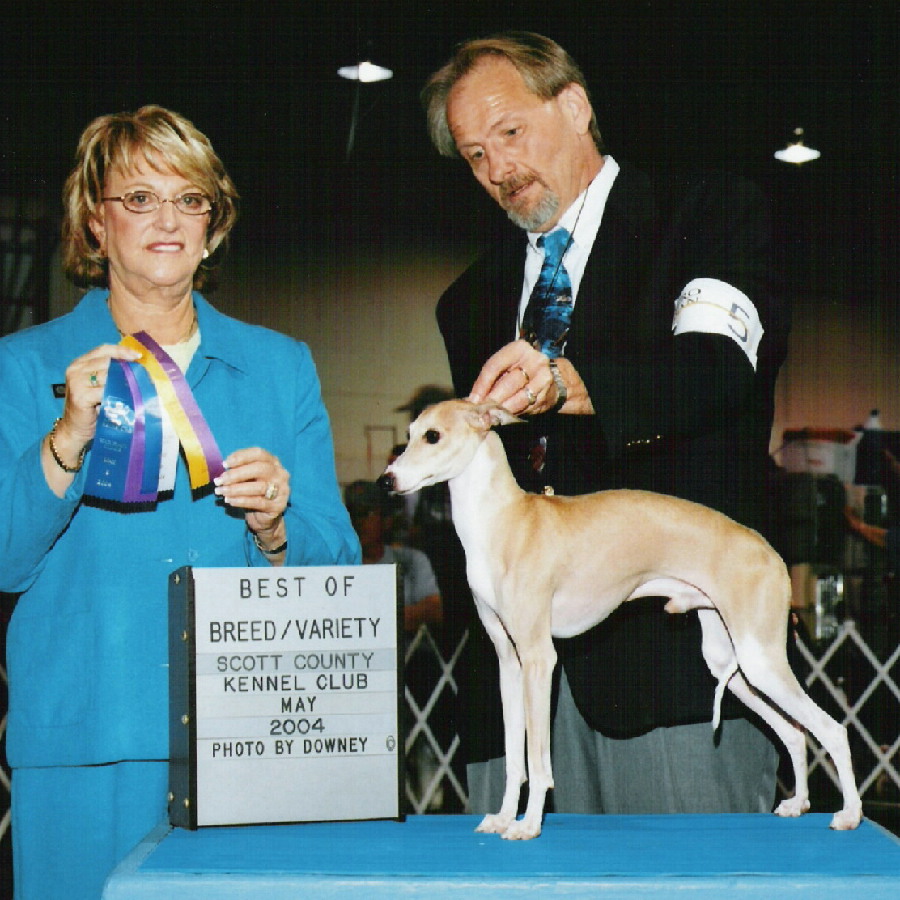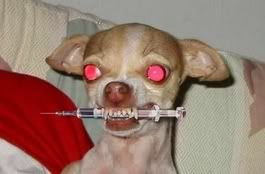Ok, so this idea came to me the other night when I was...in an altered state of mind.
So, we have miniature greyhounds:

which ostensibly came from regular greyhounds:

Basically, you breed the smallest greyhounds puppies you can find, and eventually you get smaller and smaller greyhounds---i.e. you're just "distilling" the smallness.
So what happens if you go the other way? Suppose I take a bunch of miniature greyhounds, and select the biggest puppies. Then I breed all of the biggest puppies for several generations.
Do I get big greyhounds back? And if so, do they have all the same characteristics of the original greyhounds from whence they came? I mean, since the "small" was recessive, may it be tied to a bunch of other recessive things? So when I get the big greyhounds back, they all have epilepsy or something?
I think, deep down, I have a desire to have a 150 lb chihuahua.
So, we have miniature greyhounds:

which ostensibly came from regular greyhounds:

Basically, you breed the smallest greyhounds puppies you can find, and eventually you get smaller and smaller greyhounds---i.e. you're just "distilling" the smallness.
So what happens if you go the other way? Suppose I take a bunch of miniature greyhounds, and select the biggest puppies. Then I breed all of the biggest puppies for several generations.
Do I get big greyhounds back? And if so, do they have all the same characteristics of the original greyhounds from whence they came? I mean, since the "small" was recessive, may it be tied to a bunch of other recessive things? So when I get the big greyhounds back, they all have epilepsy or something?
I think, deep down, I have a desire to have a 150 lb chihuahua.

